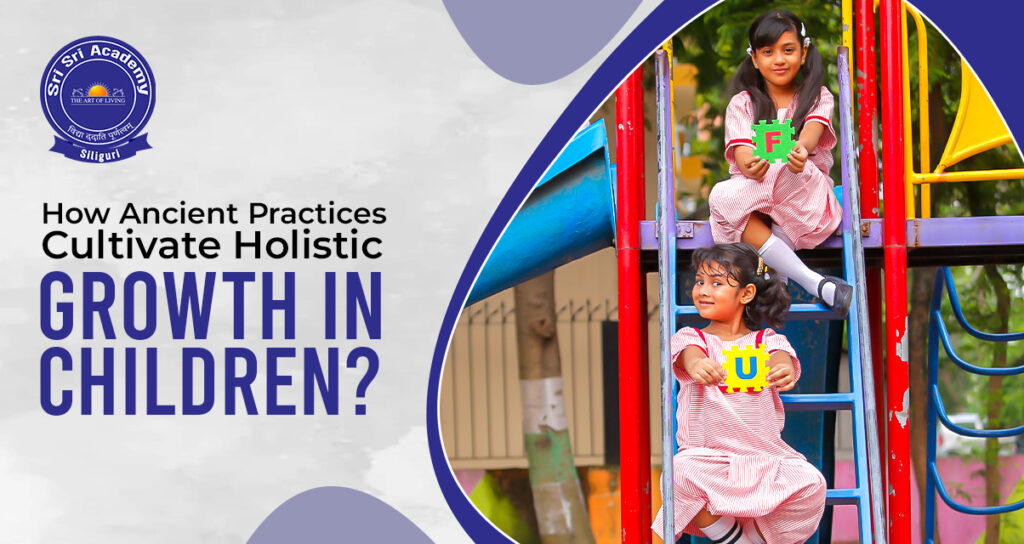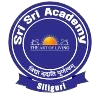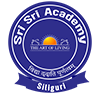
The fast-changing modern world causes most parents to focus on technological progress and academic success for their children. Thorough approaches to child development emerge from ancient wisdom which supports the development of the mind and body along with the spirits of young individuals. Time-tested techniques assist parents in developing emotional intelligence as well as resilience, physical fitness and cognitive skills within their children.
The following blog study examines ancient practices of Avadhan alongside yoga and meditation alongside pranayama while demonstrating how these techniques support complete child growth which schools can use to develop next-generation children.
Ancient Wisdom
Over many years ancient traditions developed knowledge about how the mind, body, and spirit interconnect with each other. Special knowledge systems like Ayurveda in India and traditional practices all over the world advise parents about good learning development for children. These teachings show how personal awareness leads to complete mental and physical balance by strengthening key skills people need with them.
When parents and teachers use ancient wisdom they build spaces that help students succeed mentally and socially. An environment planned this way helps children discover their abilities and builds their self-assurance.
Holistic Child Development
Child development demands attention to the overall growth of children in their physical, social, emotional, and intellectual areas. The total approach helps children develop key skills in paramedical training such as interpersonal communication, teamwork, and emotional intelligence, aligned with holistic development principles.
A complete child development approach should teach basic abilities such as:
- Emotional Intelligence: Understanding and managing emotions.
- Interpersonal Skills: Building relationships and working collaboratively.
- Critical Thinking: Analyzing situations and making informed decisions.
Avadhan Practice
Indian tradition uses Avadhan as a method to test someone’s ability to multitask and use their brain. During ancient scholarship times, Avadhan introduced several practices that required students to perform memory exercises, verbalization abilities, and mental arithmetic at the same time. The habit strengthens mental focus and helps people remember better while finding effective solutions to problems.
Teaching children Avadhan techniques helps them develop essential paramedical training techniques that will make them ready for coming learning tasks. Children master important thinking skills, and emotional regulation and learn to make quick decisions by taking part in fun mental exercises that prepare them well for future studies and ensure they can thrive in critical situations.
Yoga for Kids
The traditional philosophy of yoga which emerged during ancient times in India establishes various advantages for children. The practice involves uniting physical activity with mind control and breath techniques. Yoga delivers three types of support for holistic development as follows:
- Physical Development: Yoga practices enhance children’s physical development by improving their flexibility together with their strength and coordination which establishes a solid foundation for their overall wellness.
- Emotional Regulation: Through the connection of their movements to their breathing children learn effective emotional regulation which reduces their anxiety while promoting mental calmness.
- Mindfulness: The practice of mindfulness that yoga teaches helps children develop concentration abilities which prove vital for academic performance as well as developing connections with others.
The inclusion of yoga practices in children’s regular schedules promotes both academic development and comprehensive personal advancement.
Meditation Benefits
Meditation functions as an established method that helps people develop inner peace and mental clarity. The practice of meditation regularly benefits children through these different advantages:
- Enhanced Focus: Through meditation, people develop their ability to focus which becomes vital for both schoolwork achievements together with extracurricular participation.
- Reduced Stress: Through meditation, people develop their ability to focus which becomes vital for both schoolwork achievements together with extracurricular participation.
- Improved Emotional Intelligence: Through daily practice of meditation children develop an improved level of emotional intelligence since they become more self-aware about their feelings and better able to understand the feelings of others.
Parents who introduce meditation routines to their children develop tranquil environments to support both educational progress and outside activities.
Pranayama for Focus
Through its practice of breath control known as Pranayama children receive many beneficial effects that improve their ability to focus and gain mental clarity.
Here’s how pranayama can enhance a child’s focus:
- Increased Oxygen Flow: Pranayama techniques direct more oxygen to the brain tissue which leads to better cognitive function as well as enhanced attention capacities.
- Calming the Mind: Pranayama practice leads to relaxation through regular practice and can help minimize both distraction and anxiety levels in the mind.
- Enhancing Awareness: Children learn to become aware of their breath and body, which promotes mindfulness and self-regulation.
Regular practice of pranayama alongside children’s daily schedule helps them build a better attention span which proves essential for their schoolwork and social relationships.
Conclusion
Integrating traditional practices into children’s development enables their entire growth as it supports their physical aspects along with emotional and intellectual growth. Parents can utilize Avadhan along with yoga meditation and pranayama to develop key skills in paramedical training such as empathy, focus, and resilience. Ancient teachings guide us toward developing mature students who show their readiness to handle present-day world difficulties. Embracing these methods creates students who succeed academically and build lives through a balanced and harmonious existence.
Sri Sri Academy combines classical teaching methods with contemporary educational approaches to help students develop an entire personality and both emotional intelligence and practical competencies. When students welcome these established traditions into their education they develop strength, better concentration abilities, and achieve enhanced learning outcomes for both current academic studies and upcoming professional career advancement.

